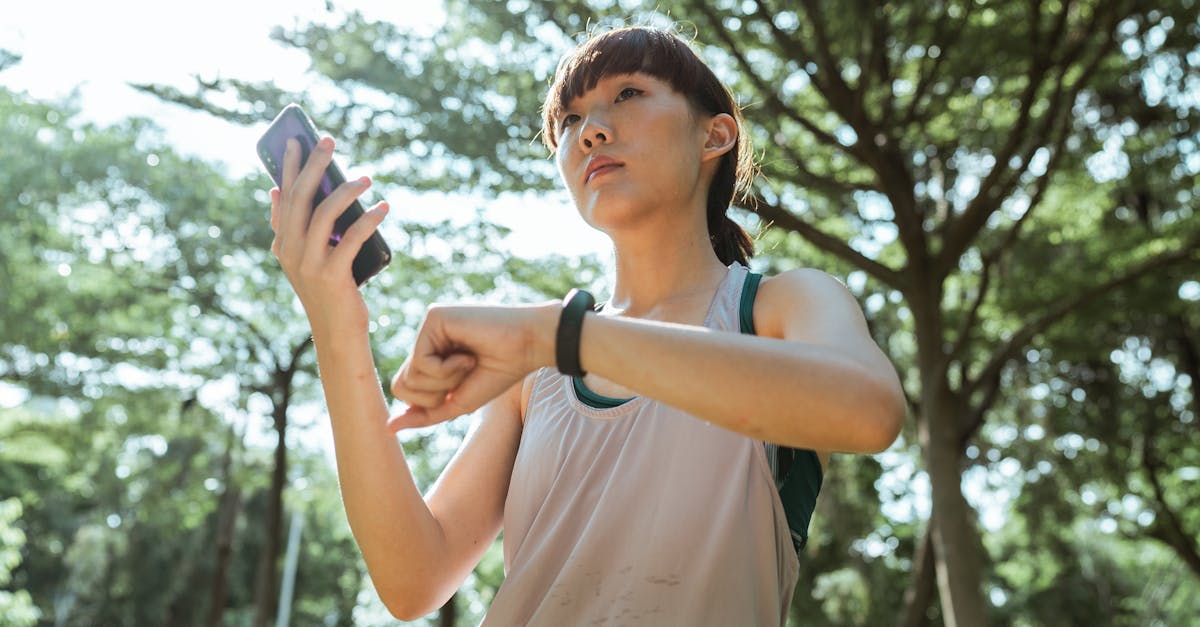In a world where counting sheep just doesn’t cut it anymore, sleep tracker apps have swooped in like a superhero for the weary. Gone are the days of tossing and turning, hoping for a good night’s sleep. With these nifty apps, users can finally uncover the mysteries of their nightly escapades—because who wouldn’t want to know how many times they rolled over in their quest for comfort?
Imagine waking up each morning armed with data on your sleep cycles, snoring patterns, and even the occasional midnight snack raid. These apps don’t just track sleep; they turn it into a science project, helping users optimize their rest like a pro. So, if you’re ready to transform your sleep game from “meh” to “magnificent,” dive into the world of sleep tracker apps and discover how they can help reclaim those precious Z’s.
Table of Contents
ToggleOverview of Sleep Tracker Apps
Sleep tracker apps offer a comprehensive analysis of users’ sleep behavior and patterns. Users can monitor key metrics such as sleep duration, quality, and cycles using these applications. Many popular sleep tracker apps incorporate advanced features like snore detection and dream logging, providing deeper insights into the user’s sleep experience.
Data visualization plays a significant role in app functionality. Graphs and charts present sleep trends, helping users identify areas for improvement. Customized recommendations often accompany the data, suggesting techniques to enhance sleep quality based on individual patterns.
These apps connect seamlessly with wearable devices, such as smartwatches and fitness trackers. Integration with these devices enhances data accuracy and allows for continuous monitoring. Real-time feedback enables users to make informed choices about their bedtime routines.
Some sleep tracker apps incorporate relaxation techniques and guided meditations as well. Those features help users ease into sleep more effectively. By tracking user preferences, these apps can suggest personalized relaxation methods based on prior sleep data.
A significant number of sleep tracker apps also offer insights into the impact of lifestyle factors. Factors like caffeine intake, exercise habits, and stress levels can directly influence sleep, which these apps analyze. Users can understand how their daily routines affect their sleep quality through this information.
With an increasing user base, sleep tracker apps are transforming sleep management. They empower individuals to take control of their sleep health, moving them toward improved well-being every night.
Features to Look For
Selecting a sleep tracker app requires attention to specific features that enhance usability and effectiveness.
User Interface and Experience
An intuitive user interface is crucial for ease of navigation. A clean layout allows users to access data effortlessly. Customizable options enable personalization, catering to individual preferences. Interactive graphics engage users and provide a clear overview of their sleep patterns. A smooth experience contributes to consistent usage, enhancing the app’s overall effectiveness.
Data Tracking Capabilities
Advanced data tracking capabilities play a significant role in analyzing sleep quality. Users should seek apps that monitor sleep duration and cycles accurately. Features like snore detection and sleep stage tracking offer deeper insights. A summary of key metrics helps users identify trends over time. Many apps also include personalized feedback based on gathered data, which encourages optimization of sleep habits.
Integration with Other Devices
Seamless integration with wearable devices improves the monitoring experience. Users benefit from real-time feedback when wearables sync with the sleep tracker app. Compatibility with smart home devices allows for automated bedtime routines. Integration fosters a comprehensive approach to sleep health, enabling tracking of various lifestyle factors. Syncing data across platforms enhances accuracy, leading to better sleep insights.
Top Sleep Tracker Apps Reviewed
Numerous sleep tracker apps provide detailed analyses of sleep patterns, helping users enhance their sleep quality. The following reviews highlight key features and performance of three popular apps.
App 1: Features and Performance
Sleep Cycle emerges as a favorite due to its advanced wake-up functionality. This app analyzes sleep cycles and wakes users at optimal times, producing a more refreshed morning. Notable features include personalized sleep reports and integration with other health apps, ensuring comprehensive data tracking. Users benefit from smart alarm features that adjust to their sleep stage, enhancing overall satisfaction. Visual representations of sleep data foster greater insight into patterns and quality.
App 2: Features and Performance
Pillow stands out with its unique capability to record snoring and dreaming. This app uses sound analysis to provide users with a deeper understanding of their sleep environment. Periodic reminders help maintain consistent sleep schedules. Users appreciate sleep trend reports that offer practical recommendations for improvement. Its design allows seamless integration with Apple Health, allowing for a comprehensive view of overall wellness.
App 3: Features and Performance
Sleep as Android impresses with its variety of tracking methods, including smartwatches and wearables. This app not only tracks sleep duration but also offers features like snore detection and sleep sound recordings. Users can engage in smart alarm settings to ensure they wake during light sleep. Daily statistics allow for easy monitoring of sleep habits while the app’s vibrant interface encourages regular usage. Compatibility with a wide range of devices enhances convenience and user satisfaction.
Benefits of Using Sleep Tracker Apps
Sleep tracker apps offer multiple advantages, primarily focused on enhancing sleep quality and providing health insights.
Improved Sleep Quality
Users often experience better sleep quality through consistent monitoring and personalized feedback. Enhanced understanding of sleep patterns encourages individuals to adopt healthier nighttime routines. Many apps include features like gentle wake-up alarms, allowing for more natural rising times that align with sleep cycles. Research shows that tracking sleep can lead to improved sleep duration and reduced insomnia symptoms. Through this data-driven approach, people can identify what influences their sleep, leading to actionable changes that promote a restful night’s sleep.
Health Insights
Sleep tracker apps provide essential health insights related to sleep behavior and lifestyle factors. Users can explore correlations between choices such as caffeine intake, stress levels, and sleep quality. By prioritizing these insights, individuals can make informed decisions that positively impact their overall health. With regular analysis of sleep data, trends emerge that highlight areas needing improvement. Enhanced sleep quality often translates into better physical and mental well-being, showcasing the importance of sleep management in daily life.
Potential Drawbacks
Sleep tracker apps offer valuable insights, yet they come with certain drawbacks that users should consider.
Accuracy of Data
Data accuracy varies significantly among sleep tracker apps. Many rely on user-provided information, which can lead to inconsistencies. Wearable devices often measure movements and heart rates to estimate sleep stages. However, they may misinterpret normal movements as wakefulness. Additionally, variations in devices lead to different tracking results, causing potential confusion. Users relying solely on these metrics might receive misleading feedback. Discrepancies in data can affect users’ perceptions of their sleep quality. It’s important for individuals to cross-reference app findings with personal experiences for a well-rounded understanding.
Over-Reliance on Technology
Over-relying on technology can hinder users’ ability to listen to their bodies. Many individuals become dependent on the apps for insights, potentially ignoring their natural sleep signals. Compliance with constant tracking might lead to anxiety surrounding sleep. Some users also feel pressured to improve metrics rather than focusing on overall restfulness. Moreover, individuals could develop an unhealthy obsession with tracking every detail. Emphasizing technology’s role in sleep management can distract from fundamental habits like creating a calm bedtime routine. A balanced approach to sleep health combines both technology and personal awareness.
Sleep tracker apps have revolutionized the way individuals approach their sleep health. By providing detailed insights into sleep patterns and behaviors, these tools empower users to make informed choices for better rest. With features like snore detection and personalized recommendations, they offer a comprehensive approach to enhancing sleep quality.
While these apps can significantly improve sleep habits, it’s essential for users to remain mindful of their natural rhythms. Balancing technology with personal awareness can prevent anxiety and promote a more restful experience. As sleep remains a crucial component of overall well-being, embracing the right app can lead to transformative changes in sleep quality and health.





